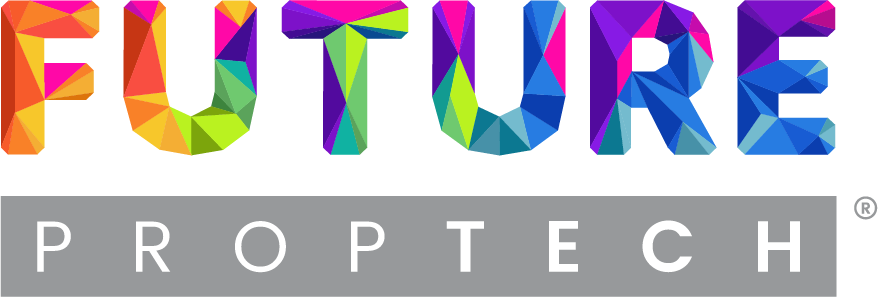
Back Proptech and Pandemics
The World of Uncertainty
During these uncertain times, little remains as clear as the need for the status quo to adapt to a new reality that will force industries to reconsider their modus operandi.
The real estate industry is no exception, as it is forced to tackle a new plethora of challenges which can be broken down as follows:
- Health : How can we slow down the transmission of the virus, and stop subsequent waves of infection?
- Mental wellbeing : Following the drastic impact that the lockdown has had on the population’s mental health, how can we positively affect people’s wellbeing?
- Maintaining cash flow : How can we find ways to resume activity and occupancy in commercial buildings without affecting the safety of people?
The Fundamental Change
A common misconception is that the challenges the pandemic has forced us to tackle don’t have any existing solutions, when, in reality, they do.
Unlike what many conspiracists would like us to believe, these solutions do not include a secret vaccine, but rather systems and software that can be adopted immediately to aid with smoother operation during lockdown and improved efficiency as we transition out of lockdown.
Patrick Ghilani, CEO of MRI , has witnessed how asset owners and managers who embraced technology before the crisis, are now finding it much easier to transition into a remote world, one where social distancing is the norm. He says: “ The good news is that we are in an industry where the availability of solutions far outweighs what people are adopting .”
Proptech has actively pioneered the future of the built environment, but the Property Industry has been historically slow to adopt technological advancements. This lack of adoption can be initially pinned down to 2 factors: the lack of in-house expertise within property firms, and the fear that their customers will not welcome change.
“ I can tell by just how that organisation operates which ones embrace that (Proptech) at the board level… It is also the significant difference in my opinion in those that will be able to sustain storms and those that will be able to win after the storms .” –Patrick Ghilani
The integration of new technology has also revolutionised the role of landlords and building owners, who have transitioned from offering a physical space to hosting a virtual community.
Adrian, CTO of Nexudus , highlighted how this transition is particularly evident for coworking spaces that harboured physical communities and have had to adapt to offering virtual memberships, webinars, zoom yoga sessions and more.
The Technology
Communications
The first step towards keeping everyone safe is clear communication. Patrick Ghilani highlights the importance of communication and urges any asset owner or operator to prioritise community portals, helpdesks and communications platforms. He also notes how, historically, there has been higher adoption of such technologies across the residential rather than commercial space.
Online communities can also be used by landlords and building owners to build a digital environment that can foster mental wellbeing of members and keep them engaged. This is an important aspect of building a premium brand and consequently long term customer loyalty.
Mashroom , a London-based rent tech company, has been tackling the residential real estate automation with a “full-stack” approach, which involves both end-to-end digitisation and building community features.
Mashroom’s CFO, Alexander Badalyan says: “ We spent the last 2 years wrapping the complexities of letting processes around a simple user experience, which empowers landlords and tenants to transact, manage properties, and most and most importantly communicate effectively to strengthen the relationship between landlords and tenants. We think that ultimately the community component is central to making every human-centric interaction work efficiently and creates a better experience for both tenants and landlords."
Access Control
In order to contain the spread of the infection in the commercial office environment, the doors to most office buildings have been closed. However, as the government prepares to ease lockdown measures, controlling accessibility and footfall will be paramount.
It is likely that some office space providers will setup thermometer access gates or retrofit existing automated access gates. However, this is not a cheap solution and so most building owners will have to rely on clear communication and trust with tenants to ensure that workers who can spread the infection stay home.
As social distancing measures are implemented in offices, many desks will be kept empty, and controlling the capacity of all commercial premises will become critical. While IoT sensors could dynamically calculate available desk space in real time and control access to the building, this method is relatively expensive. A portal-based, pre-booking system for desk spaces might prove a more affordable option. This would allow workers to check office availability without leaving the house. Nexudus have already implemented such features with their clients in Norway.
Keep it Clean
It goes without saying that cleanliness and effective janitorial services will become crucial. Increasing the number of staff, although an easy solution, will come at an increased cost. Businesses should take this opportunity to reallocate existing resources, by adopting technologies such as presence sensors to measure the usage of individual spaces across the building. This will allow the effective allocation of staff depending on the use of each space. These footfall sensors come in many shapes, sizes and prices, and while a potentially an expensive initial investment, they can unlock great insights in the long term.
Other technologies used for effectively cleaning spaces such as UV robots, while interesting, will have to be limited to after-hour operations as exposure to UV light puts people at risk.
Logistics
The current measures of lockdown have given rise to a new level of demand for online shopping and a massive increase in home and office deliveries. Although efficient, delivery poses a health risk as couriers are exposed to a number of people, making it important to limit their access to buildings.
Parcel Lockers, such as BringMe Boxes, although effective, as they remove the need for any social contact, are an expensive and difficult to implement the solution. Furthermore, all lockers will require regular cleaning as all members of the building will be interacting with them on a daily basis.
Internal parcel tracking software can be an alternative to parcel lockers. Parcel Tracker has recently released a signature-less secure collection service, which allows for parcel management while maintaining social distancing protocols.
Business Continuity
A key challenge currently faced by the Property Industry lies in continuation of their day to day business operations. System automations seem to be the key for survival for a lot of prop-tech companies who have digitalised their end-to-end prospecting, closing and on-boarding of clients.
Companies such as MRI, Yardi and more offer these systems across all verticals of the built environment. There are also industry-specific providers such as Nexudus for co-working and TCAS for Student Housing.
VR or self-guided tours of properties will be a very strategic play in the short and long term. Other systems such as online identity verification automation, contract signature, first rent collection and deposit scheme systems to keep new business flowing for both residential and commercial spaces.
This type of automation technology will enable agents to manage much larger deal pipelines and act as a force multiplier.
The Conclusion
The critical decision for real estate businesses in the near future will be that of whether to adopt technology in the face of increased pressure on operations and safety. There are examples all around us of tech adoption, and the pace is increasing despite the political uncertainty – arguably because of it. It’s still not too late to make a change, and there are a large number of solutions out there to choose from
“Innovation is a one way street, once you begin using it, IT IS IN” – Patrick Ghilani
Bio
Arthur Zargaryan is the CEO at Deepfinity, an AI Proptech & Logistics company. In 2018 they launched their flagship product: Parcel Tracker, an internal parcel tracking software. The full interview with Patrick Ghilani CEO of MRI, on which this article is based is linked here .
